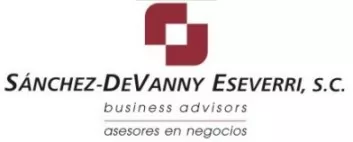Mexico’s Federal Competition Commission ("CFC") calls upon whistleblowers to fight secret cartels established between two or more competitors who have illegal agreements aiming at: (i) fixing prices; (ii) restricting the output; (iii) sharing markets; and (iv) bid-rigging. Through this leniency policy, the CFC intends to destabilize cartels which de facto restrict competition and free access to the Mexican market and ultimately improve the conditions of competition in Mexico.
Following general recommendations of an OECD Peers Review in 2004 on Competition Law and Policy in Mexico that reported that the CFC needs better investigative tools, including the ability to give leniency to a whistleblower revealing secret cartel conduct, the Plenum of the CFC announced on January 26, 2006 a corporate leniency policy and leniency policy for individuals to grant immunity from fines of practically 100% or a large reduction of fines to corporations and individuals who cooperates fully with the CFC in the investigation of absolute monopolistic practices. Said practices are hard core horizontal agreements prohibited per se and legally void by Mexico’s Federal Law of Economic Competition ("LFCE"). For absolute practice violations the LFCE permits the CFC to impose fines for up to 375,000 minimum daily wages for Mexico City ("MDW") (about $1,740,000.00 USD) to corporations and up to 7,500 MDW (about $34,800.00 USD) to individuals. In egregious cases, an alternate fine equal to the greatest of 10% of the violator’s annual sales or 10% of the violator’s assets can be imposed. However, with the leniency policy of the CFC, the applicable fines would be reduced to 1 MDW (about $5.00 USD).
Leniency by the CFC will only be granted if the following conditions are met:
- The economic agent is the first that comes forward to report the illegal activity to the CFC;
- The economic agent is the first to submit relevant and convincing evidence which enables the CFC’s to adopt a decision to carry out an investigation and eventually find the existence of an absolute practice violation;
- The economic agent request leniency before the CFC publishes the initiation of an investigation on the specific absolute practice violation in Mexico’s Federal Official Gazette. Still, if the CFC has already published the initiation of an investigation, the economic agent may benefit from leniency as long as the CFC has not yet charged any economic agent for such illegal activity, in which case, the economic agent will not receive total immunity, but will obtain a substantial reduction of the applicable fine; and
- That the economic agent take effective action to terminate its part in the illegal activity, or that it continue taking part of it at the request of the CFC, and provides full, continuing and complete cooperation to the CFC throughout the investigation, as well as during the administrative procedure which will be held in the form of a trial.
An important difference of the CFC’s leniency policy to those leniency programs of the U.S. and the E.U. for example, is that the same degree of leniency will be available to the ring leader of the cartel, i.e., to the originator of the activity, as long as it fulfills the same conditions pointed out above. The second economic agent that comes forward to report to the CFC the illegal activity and request leniency, will only be able to obtain a 30% reduction of the applicable fine, whilst the reduction for subsequent economic agents that come forward will be of 20%.
The CFC argues that similar leniency programs around the world have achieved remarkable results, and that the implementation of this leniency policy in Mexico will increase opportunities of international cooperation between the CFC and foreign competition authorities elsewhere who investigate international cartels. The CFC’s intention is to encourage corporations and individuals that are taking part in leniency programs outside of Mexico to also report them in Mexico. Absent this new leniency policy, foreign competition authorities are reluctant to share their confidential information and evidence with the CFC, since such exchange of confidential information would be used against the whistleblowers in Mexico.
Notwithstanding the foregoing, we are of the opinion that the leniency policy recently announced by the CFC is incomplete and will not be successful until: (i) the CFC publishes guidelines explaining in detail its leniency procedure with complete transparency and certainty; (ii) questions are cleared with respect to the administrative, civil and criminal consequences to the economic agent who cooperates with the CFC and obtains leniency (for example with respect to affected third parties, criminal prosecutions, etc.); and (iii) it is confirmed by the Mexican judiciary that the Plenum of the CFC does in fact have authority to implement this leniency policy without an amendment to the existing legislation, since nowhere in the Mexican legal framework is found an express reference to a leniency policy to fight cartels. On this last issue, we anticipate a bitter debate in the following months.
The content of this article is intended to provide a general guide to the subject matter. Specialist advice should be sought about your specific circumstances.


